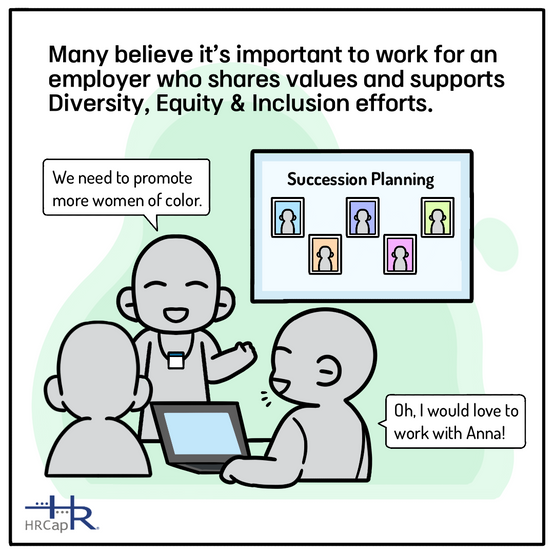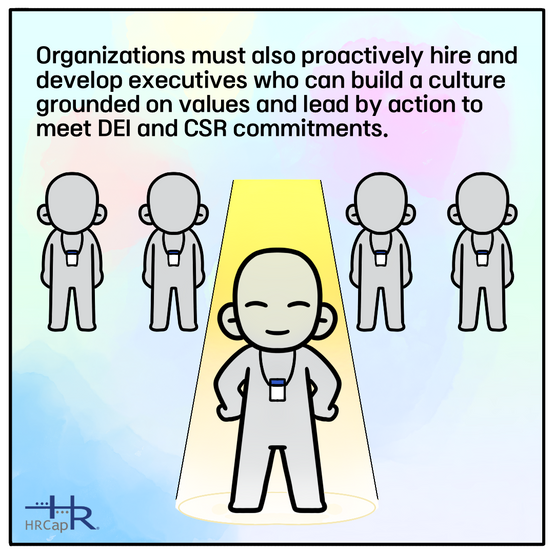6 MZ Generation Career Categories: (4) ‘Principled Partners’
- jonathanlee41
- Jul 20, 2023
- 3 min read
Updated: Aug 10, 2023
Written by Stella H. Kim
Published July 20, 2023
DEI · CSR, Corporate Culture not Corporate Policy

Following the “Eager Entrepreneurs,” “Refined Reskillers,” and “Introspective Idealists,” the fourth MZ Generation Career Category is the “Principled Partners.”
These are the MZ Generation employees who prioritize ethics and values. When asked if they are open to consider a new job opportunity, many from this category respond by first asking about the corporate culture.

Diversity, equity, and social responsibility is extremely important for the MZ Generation, who want to feel inclusion and belonging. According to EY, 63% of MZ Generation believe it's important to work for an employer with shared values, and according to TalentLMS, 77% consider it highly important that their company supports DE&I (Diversity, Equity & Inclusion) efforts.
Therefore, Principled Partners are less concerned about succeeding at work, and more driven by feeling genuinely engaged and represented, and growing collectively with the organization with shared values. As such, many choose to leave immediately if they ever feel disengaged, excluded, or even misled by the company who does not live up to its initial commitments.
Many organizations have proactively included DEI in their corporate initiatives to strengthen their market positioning and attract more qualified talent. However, they fail to truly understand the importance of DEI. Some are delaying and looking to invest in DEI if they become more profitable and large-scale, when the market improves, and once the organization has more resources.
However, DEI is not a simple slogan nor a checklist, but a critical issue that companies must actively address for sustainable growth and management. DEI must be internalized and all leaders need to truly believe in creating a more diverse, equitable, and inclusive environment. Only then can the company become a highly desired place of work that unites employees and gives back to the society.
Feeling of belonging is extremely important as it instills hope, drives engagement, and allows productivity. For instance, representation of Asian leaders at a mainstream society, female executives at tech startups, and young management at dinosaur companies bring about a sense of belonging, safety, and stability to minority groups. This allows the MZ generation to lean in and become more vocalized in their workplaces.
Corporate Social Responsibility (CSR) is another critical commitment to building corporate culture. The CSR pyramid can be divided into Economic, Legal, Ethical, and Philanthropic Responsibility. CSR activities can include environmental protection, reduced carbon emissions, job creation, protection of consumer rights, charitable donations, and equity and inclusion of minorities and women. For over 30 years, Coca-Cola has committed to their water replenishment goal of returning 100% of the water used in their manufacturing processes back to nature and communities in need, while Salesforce's 1-1-1 philanthropic model gives back 1% of product, 1% of capital, 1% of employee time to the community.
Therefore, DEI and CSR must become corporate values and culture, not corporate policy or achievement. Instead of cutting a large promotional check to donate to a cause, it is far more organic and purposeful when employees come together on a meaningful cause and volunteer their time.
Organizations must also continuously hire and develop talent who will prioritize building a culture grounded on values and lead by action to meet DEI and CSR commitments. After all, we all want to work for a leader who continuously inspires and genuinely supports our values.
Stella H. Kim, SPHR
HRCap - Chief Marketing Officer & Global VP
Original Source: [전문가 칼럼] 6가지 MZ세대 커리어 유형: (4) '가치관 중심 동반자’
Source: HRCap, The Korea Daily, JoongAng Ilbo




















































